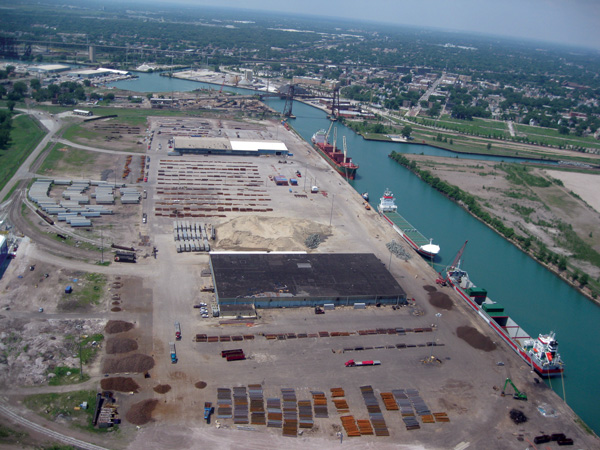Illinois is no stranger to stellar economic development performance. Over the past decade, Illinois has consistently ranked as a top three state in total corporate facility investment projects, while Chicago has claimed the No. 1 metro title from Site Selection a record 11 years in row.
Illinois maintains this lofty status by constantly fine-tuning the economic development programs at the state level. In the following interview, we hear from Kristin Richards, the director of the Illinois Department of Commerce and Economic Opportunity.
In the past year, Illinois has secured a number of new project investments and expansions that span several industries. What is the state hearing from corporate leadership as it relates to why Illinois stands out for supporting these large-scale investments?

Director, DCEO
KRISTIN RICHARDS: The state takes a united approach to working with companies in our business development pipeline. Alongside our Team Illinois partners within the Governor’s Office, Intersect Illinois, Innovate Illinois, and other local economic development organizations, we are providing comprehensive services to companies who are drawn to our world-class workforce, unmatched infrastructure, top-tier education and research institutions, and more. Companies frequently comment on how this Team Illinois unity, welcoming collaboration and nonstop commitment to project success, led them to a pro-Illinois decision.
Corporate leadership has also stressed that the diversity of the state’s economy is a value-add in their own supply chains. Access to a diverse landscape of skilled manufacturers reduces costs and helps companies meet timelines. Team Illinois continues to sponsor industry days for different sectors, providing forums for companies to meet and matchmake, amplify their work with economic development professionals, and discuss industry trends with policymakers to make those important connections.
A ready, trained workforce is top of mind for all companies, and there is no question that Illinois’ workforce assets can deliver. Illinois’ workforce is the best in the Midwest for a reason: Illinois invests in its people from cradle to career. From 664 nationally ranked public high schools to the third largest community college system in the country, to 3 million Illinoisans having a bachelor’s degree or higher, companies can attract the talent they need in Illinois.
Team Illinois can also leverage resources from the state’s Rebuild Illinois program to invest in site readiness and public infrastructure. Illinois has long been regarded as a great state to do business with because of our networks of roads, rail, airports and barges that help companies move goods to market. Illinois is in the middle of everything, and companies know that their ability to access international ports, all Class I railroads, and fly direct to cities across the world is an asset that is unique to Illinois.
The state has looked at sectors with high projected growth and layered that with our internal assessment of our right to win to create targeted incentives in those areas of overlap. This has produced meaningful and competitive incentives that resulted in billions of dollars and thousands of jobs being created across the state.
The state has been adamant in strengthening incentives to offer businesses and building on many targeted workforce programs. Are these moves often a result of listening to current community needs or anticipating future needs?
RICHARDS: Both. Thanks to the support of Governor Pritzker and the Illinois General Assembly, the level of support offered to companies is stronger than ever before. The Department of Commerce and Economic Opportunity looks outward and listens, and we are deeply committed to not only hearing from partners about how to make Illinois’ offerings the best in the nation but thinking steps ahead of other states about the high-growth industries that will flourish in Illinois’ business ecosystem.
HB5005, recently passed and signed by Governor Pritzker, included investments in tax credit programs for the film industry and research and development projects across the state, as well as changes to the Economic Development for a Growing Economy (EDGE) and Reimagining Energy and Vehicles (REV) programs to address emerging industries and large projects. The bill also eliminates red tape for the Blue-Collar Job Act (BCJA), expands the River Edge Redevelopment Zones to new downstate communities and codifies quantum computing as eligible for the Manufacturing Illinois Chips for Real Opportunity (MICRO).
A ready workforce and a continued partnership to build out training, the talent pipeline, and retention strategies is an essential part of Illinois’ promise, and the State continues to invest in the Fast Track program, along with a range of other employee training and apprenticeship programs, to help prepare the workforce that companies need. Community colleges are an essential partner in this effort: Manufacturing Training Academies are capital grants to community colleges tied to major employers in next-generation industries and many of the Climate and Equitable Jobs Act (CEJA) Workforce Hubs will be located at community colleges.

Iroquois Landing is one of the prime available sites at the Port of Chicago.
Image courtesy of Illinois International Port District
The state’s Apprenticeship Tax Credit provides $5 million annually in credits to offset the costs of in-house apprenticeship programs. Illinois leads the nation in approved apprenticeship programs, and investing in creating apprenticeship opportunities for Illinoisans is a focus across workforce leadership. This also means that Illinois offers companies dedicated apprenticeship program experts, located across the state, to support program design and set-up.
At the state level, we know that site readiness is top of mind for all companies looking for a location. DCEO has invested in site readiness, with $80 million committed to site development across the state over the last 18 months.
As the state welcomes new project investment, how vital has continued investment into programs like ETIP and JTED become around the state?
RICHARDS: Legacy DCEO programs like ETIP and JTED are renowned for their ability to gainfully impact employers and jobseekers. The Job Training and Economic Development Program (JTED) is more than 25 years old, for example, and the legislature has recognized its ongoing impact in training under-resourced individuals to find meaningful employment in sectors with workforce shortages.
The Employer Training Investment Program (ETIP) is another legacy program with a record of accomplishment of success. As part of business deals, or through the state’s partnership with Team Illinois members like the Illinois Manufacturers’ Association, companies can receive a one-to-one match to cover the costs of training their people.
In addition, the Fast Track program — which is a newer program in our portfolio — provides nimble support to help companies in their recruitment, training and retention, typically in partnership with workforce or education providers. Fast Track funds the development of a specific plan to support companies, along with state-funded staffing to implement that plan.
Covering every aspect of what the state’s workforce might need to secure quality employment is no simple task. How will growing workforce programs like Home Illinois Workforce Pilot Program aid the state in reaching more of its underserved populations?
RICHARDS: It is tough to find a job when one’s living situation is tenuous. The Home Illinois Workforce Pilot Program is an example of DCEO’s continued efforts to support Illinois families who need it most. This funding will increase job opportunities, provide a pathway to sustainable employment, and ensure individuals who are underemployed, unemployed and underrepresented have the support and resources they need to obtain permanent housing. This is one bright example of many programs created to help Illinois’ most vulnerable residents by providing them with access to the tools and resources needed to become career ready and contribute to Illinois’ growing economy, while also providing companies with access to trained talent.
DCEO continues to diligently work to implement CEJA workforce and training programs that support jobs in the clean energy industry and growth among clean energy businesses. CEJA programs including the Climate Works Pre-Apprenticeship and the Clean Jobs Workforce Network focus on supporting Illinoisans in communities most impacted by economic barriers and environmental change.
Workforce development programs implemented through CEJA and JTED come with dedicated barrier reduction and supportive services funding. These funds ensure that trainees with financial constraints have the resources they need to see the training program through to completion, including financial support for child care, transportation, counseling and more.
Driving innovation has become a key focus for the state and its businesses alike, from Tech Hub designation to incubators like mHub. How would you assess the future of collaboration across Illinois in comparison to a decade ago?
RICHARDS: Recently, the state’s Research and Development Tax Credit was extended, and legislation was enacted to expand the popular, first in class REV, EDGE and MICRO incentive programs to attract emerging industries and support pre-revenue companies. DCEO does this all in lockstep with Team Illinois partners. This is a collaborative effort to ensure State resources are aligned with what innovators need to succeed.
To maximize the potential benefits Illinois can receive from new federal opportunities supporting innovation in IIJA, IRA, and CHIPS, Governor Pritzker created Innovate Illinois in partnership with economic development organizations and research universities. Innovate Illinois gathers stakeholders to communicate to federal grant makers, disseminates information about federal opportunities, promotes efforts by Illinois applicants, and provides support to coalitions in Illinois applying for opportunities. The state often further supports applications for federal funding through its competitive Federal Grant Support Program, which covers a portion of the required cost-share for federal grants.
In 2024, the state started a new Advantage Illinois Loan Guarantee Program to increase the capital options available to small businesses, as well as the Illinois Innovation Venture Fund (INVENT), a $114 million direct equity capital program.

